This year marks the start of PSA Group’s onslaught on the electric car market.
All five of its brands (Peugeot, Citroen, DS, Vauxhall and Opel) are expected to bring out new plug-in hybrid electric vehicles (PHEVs) and pure battery electric vehicles (BEVs) over the next two years, with PSA’s Common Modular Platform (CMP) now able to accommodate pure EVs and its Efficient Modular Platform 2 (EMP2) catering for plug-in hybrids as well as conventionally-fuelled vehicles.
PSA premium brand DS will be first to market in spring when orders open for the DS 7 Crossback E-Tense 4x4 plug-in hybrid, followed by the all-electric DS 3 Crossback E-Tense in quarter three and then the Peugeot 3008 SUV Hybrid 4 and 508 Hybrid. At the start of next year, Citroen will launch the C5 Aircross plug-in hybrid. Plug-in hybrid versions of the Vauxhall/Opel Grandland X will also be available.
Peugeot is expected to be the first brand after DS to get a new BEV, likely to be the 208, which is rumoured to be unveiled at Geneva this year, followed by a BEV for Citroen (logically, the C3).
It means each brand will have one or more electrified versions of models by the end of 2020.
SWIFT PROGRESS
“It’s all happening really quickly with a range of products,” says PSA’s Martin Gurney, who is responsible for fleet and used vehicle sales for Peugeot, Citroen and DS in the UK. Vauxhall sales are still managed separately.
Gurney adds: “They’re all going to be exciting, but the one I can’t wait to drive is the DS 3 Crossback E-Tense. I think it will be a fantastic vehicle in terms of having a premium, fully electric car in that segment. It is something completely different for us to talk about.”
PSA has already established itself in the electric van market with the Peugeot Partner and Citroen Berlingo having around 15-20% of the market, while its previous generation electric cars include the Peugeot Ion and Citroen C-Zero.
Gurney is reluctant to talk about fleet sales expectations for the group’s new electric vehicles because “once you head off down that road and start talking minimum levels of production and pushing cars into the market it’s an absolute disaster from a residual value perspective”.
“My expectations, certainly in the short-term, for plug-in hybrid vehicles are what I would describe as ‘modest’ but if I don’t sell those modest amounts I won’t be worried. If we sell more, I’ll be pleased, so it’s a relatively small proportion of the mix to begin with,” he says.
“It’s not a sales forecast or a production commitment, but I would imagine we’ll sell in the region of 1,800 to 1,900 new 508 this year. The plug-in hybrid version, I would imagine, would be less than 10% of that mix, but never say never.”
PSA intends to offer fleet customers a home-charging and office-charging solution when the EVs launch towards the end of the year and has recently secured a partnership with a European charging provider. PSA is also working with its dealer network (starting with DS Stores and Salons and Peugeot dealers) to ensure it has the necessary charging infrastructure. Some are facing the same challenges with electricity supply as fleet operators.
“It completely depends on the town the dealer is located in, where they are in the town, any number of different factors as to what kind of electricity supply they have on site, whether they are fine as things are, whether they need upgrades to the infrastructure, whether they need to upgrade the local substation and contribute towards that cost,” Gurney says.
“It requires a dealer-by-dealer survey to understand what is possible and, of course, we’re not just trying to be ready for what comes at the end of this year, we’re trying to future-proof and work with our dealers to make sure that what they invest in is something that is going to see them through the next few years. So, making sure there is fast charging available in the workshop, there is fast charging available out the front for customers, slower charging where it makes sense in areas of the business where that instant top-up is not required. It's very complicated.”
Peugeot and Citroen plan to have electrified versions of all models by 2025 while DS has gone a step further: from that date every new DS model will be 100% electrified. In other words, it will not launch any new conventional diesel and petrol engines.
“DS is a bit ahead, the other brands need to retain a bit more flexibility in terms of appealing to the more traditional forms of propulsion in the interim,” Gurney says.
He is keen to stress there is still a place for diesel on fleets and that he believes in a “balanced approach” – petrol for lower mileage users, diesel for high mileage and, where appropriate, full-battery electric or plug-in hybrid.
“It’s having the right product for the right use, as has always been the case in fleet,” he says.
In his view, Government policy and the ‘demonisation’ of diesel in the national press has led to a short-term “rush” to petrol and that “isn’t the answer”.
“There is this misbelief or misunderstanding, particularly from a retail consumer perspective and therefore a user-chooser driver perspective, that in some way a modern petrol engine is better for the environment than a modern diesel and, I’m sorry, I just don’t accept that that is the case,” he says.
He points out that some new diesel engines have lower NOx emissions than petrol equivalents. Take the Peugeot 508, for example, its 1.6-litre PureTech 180 petrol engine produces 39.7mg/km of NOx while the 2.0 BlueHDi 180 diesel engine emits 28.6mg/km.
“My strong personal view is that we need a Government policy that doesn’t push buyers down one particular route,” Gurney says. “I sincerely hope when the Government can move on from thinking about nothing other than Brexit we will start to have a more balanced and progressive, forward-thinking approach to company car taxation – one that favours electric and plug-in hybrid vehicles and doesn’t unfairly penalise new Euro 6.2 diesels.”
While uncertainty has made it difficult to predict fleet sales this year, Gurney says PSA is “pretty confident in any scenario”.
“We’ve worked on three or four different possible outcomes as a result of Brexit and we’re confident we can cope,” he says. “We’re very fortunate in the longer term, now we have acquired Opel Vauxhall Europe we’ve got both a car and LCV plant in the UK, which can only be a good thing.”
He says that in the event of “some degree of ‘soft’ Brexit” there would be a “modest decline in the UK market overall” (a few percent down) but that “we fully expect to continue to grow in terms of our share of that market” due to recent launches and forthcoming product, including Peugeot 3008, 5008, 508, Rifter and Partner; Citroen Berlingo, C3 Aircross and C5 Aircross; and DS 7 Crossback and DS 3 Crossback.
“Peugeot 3008 and 5008 are still very much new product and in the ascendancy and I would expect our fleet volumes on those to continue to grow for the next two years as we work through our natural fleet change cycles with customers. We've got Rifter, which is the new car version of the Partner van, which has been exceptionally well received; we've got new 508, again that has been incredibly well received; new Partner van is just coming on stream now; new Berlingo van will continue; C3 Aircross is starting to find its feet, it’s doing particularly well in public sector; we’ve got the UK launch of the C5 Aircross launch this month; DS 7 Crossback, we've only just started with, we're being so careful to position it correctly among its premium peer group, and then we’ve got a huge opportunity with DS 3 Crossback coming this year so you can imagine why we're confident of whatever the political and economic climate throws at us we'll see market share growth this year,” Gurney says.
CORPORATE SALES TEAM
Gurney’s confidence also comes on the back of gaining 218 new 50-plus fleets (people who had not bought from Peugeot or Citroën in the previous four years, and conquest customers) last year, thanks in part to having one corporate sales team to represent all three brands.
The team has taken a ‘back to basics’ approach over the past two years focusing on how it communicates with customers, how it presents itself and how it delivers what customers want and ultimately grow what Gurney terms ‘green channel’ fleet sales (true fleet).
PSA has invested a “significant amount” in a suite of training programmes and a new database (coinciding with last year’s General Data Protection Regulation), which has helped the team to be “more efficient” when communicating with customers.
Modules within the database help the team to “talk to the right customer about the right product at the right time – that is the right time for us and the right time for the customer”, Gurney says.
However, last year did present a number of challenges. A “tightening up of supply of Partner and Berlingo” contributed to a drop in SME sales, although there was also “a reduction in shorter cycle, courtesy car business”, according to Gurney.
Daily rental sales for the year were in line with Gurney’s target of being no more than 10% of PSA’s mix.
DS true fleet sales (just 842 units) reflect the fact that PSA is building a new premium brand.
The new Worldwide harmonised Light vehicle Test Procedure (WLTP) was positive in the sense that the PSA Group was fully compliant ahead of the September 1 deadline and “we had no gaps at all in our production”.
But Gurney was also “disappointed” that “a number of customers were slowing down their buying decisions”, driven by “uncertainty over future company car taxation” and not having “a full picture from all manufacturers”.
“Now everyone more or less knows where we are with WLTP I think we’re seeing the job-need and necessary purchasers starting to proceed again so our order take is better now than it might have been perhaps a few months ago. But, for sure, when we’re speaking to customers and fleets with a wide user-chooser base there is still a degree of uncertainty and I’m pretty sure that, where they can, a lot of customers are still taking the opportunity to extend contracts,” Gurney says.
He sees the Government’s consultation, which will look at whether vehicle tax changes are required once WLTP is adopted for tax purposes from April 2020, as “nothing more than a recognition that something needs to be done so we'll wait and see with baited breath”.
Working for a car manufacturer which caters for drivers who opt out of company car schemes with PCH and PCP deals, Gurney isn’t too concerned about a potential drift to cash.
“I’m a firm believer that if you’ve enjoyed a new company car for the past decade or longer then you’re probably going to want to continue enjoying a nice new car for years to come. So, I think it creates an opportunity rather than a threat,” he says.
WLTP for vans presents challenges for converters
PSA will hold meetings at its Coventry base with its convertor partners this month ahead of the requirement in September for all new vans to have received type approval under WLTP.
“We do a lot of conversion business and that presents challenges,” Martin Gurney says. “Our specialist fleet business unit here is working closely with the conversion team in Paris – we’ve already had one or two converter days in Paris to discuss this issue and will hold meetings at our head office in Coventry to continue to involve our converter partners in what it might mean for them.
“It’s too early to share the full details, but we’re pretty sure we’ve got a solution that is going to be simple enough for our converters to work with while also respecting the legislation we need to comply with so it is complicated for sure and it's going to create challenges for converters but we're committed to helping them to make the process as efficient as possible from the point of view of homologation.”
‘More vigorous’ standards for dealers
Martin Gurney introduced a “more rigorous application” of Business Centre standards approximately two years ago to “make sure we had proper Business Centres not just investors who said they wanted to be a business centre and didn’t do very much about it”.
There are currently about 50 Peugeot Business Centres (out of a network of 190) and about 40 Citroen Business Centres (out of a network of 160) who have monthly targets, regular monitoring controls and a number of measures they have to operate by.
The remaining dealers have adopted a ‘business essentials programme’ – a simple set of standards that demonstrates to the local business customers that they can go there and buy a van or get a car on contract hire.
All of the DS stores and salons (currently at 35 but likely to grow to 50 this year) are expected to offer “a premium level of service” to user choosers and local business customers.
Gurney on…
…Lead times
The average lead time for Peugeot and Citroen product is currently one-to-three months, although fleet customers should expect a long wait for the Peugeot 5008 (up to six months). “That's purely as a result of exceptional demand across Europe. We're selling them at a faster rate than we can build them at the minute. It's a fantastic car that's just at the right point of the market, it's a seven seat SUV, and its enjoying phenomenal success everywhere and we're fighting every month to get the production we need.”
…Simplifying trim levels
“I’m a big believer in the limited packs of options. I think it benefits everybody. It's simpler to understand. It's simpler to administer. It's simpler to provide information. It has an RV benefit often if you package up a group of options and explain to the influencers how that works and what the pack comprises so everything points to that direction. There is no official news but I'm pretty convinced that's the route we'll go. We’ve got tough emissions regulations to achieve in 2020 and anything that can help up manage that with our customers while offering the appropriate level of choice is the right thing to do.”
…Telematics
“Our Free2Move Connect Fleet, which is our telematics fleet management solution, launched last year. Our policy is that progressively the ‘magic box’ if you like is standard equipment and we take a flexible approach whereby if our customers want to continue to work with a telematics fleet management solution of their own they can and we're happy to work with third party providers and give access to the data that comes from the ‘magic box’ to feed into existing fleet management systems or they can take advantage of our own Free2Move Connect Fleet system which has various different options to help people manage their fleet effectively. We will have a big push on that to more widely commercialise it as we move through the year.”
…Car sharing
“We have quite a lot of fleet sharing solutions in the pipeline. We launched a car-sharing scheme in Paris last month using Peugeot Ion electric vehicles which obviously work well in that environment. We'll have smart access digital keys with the DS 3 Crossback so rather than having a set of keys to unlock the vehicle you can do it from your mobile phone. That's one of the key building blocks to having an effective fleet sharing solution moving forward.”
…Autonomous vehicles
“We have level two autonomy on DS 7 Crossback and Peugeot 508 and it’s quite incredible how much of the driver workload is taken away – that constant assistance with lane-keeping on the motorway or dual carriageway, adaptive cruise control with AEB takes away so much of the stress and fatigue of driving.
“I think how far autonomy goes depends on consumer appetite for cost. It's very expensive and to commercialise anything approaching full autonomy at this stage – you'd probably be spending in the region of £15,000-£20,000 as a vehicle option price and there aren't many people at this stage that would want to pay a 50%, in some cases 100%, premium on the cost of a vehicle to have that autonomy so my personal view is much beyond the level of autonomy we have today it starts to become prohibitive on all but the most expensive premium vehicles.”

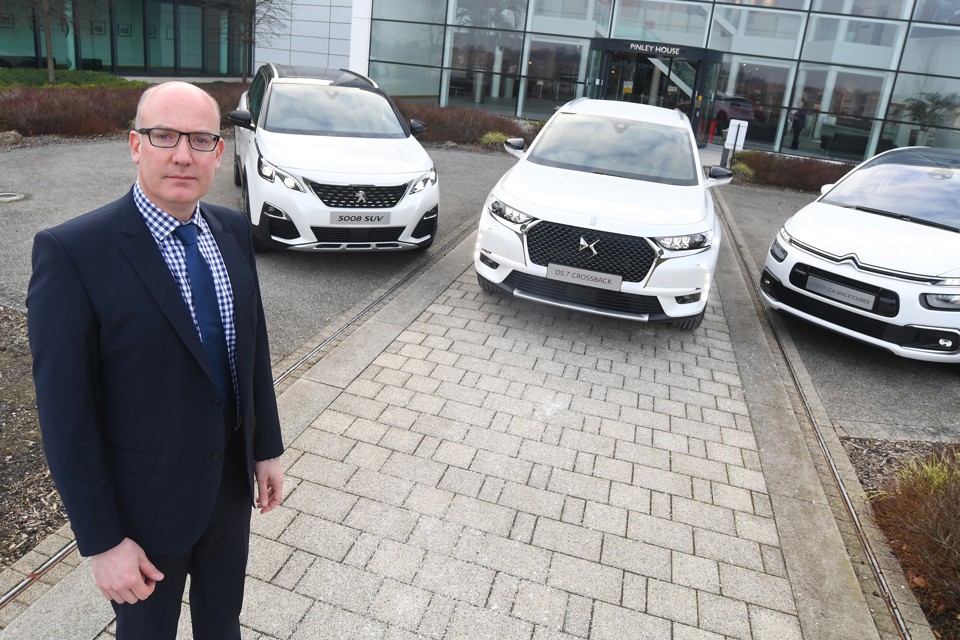


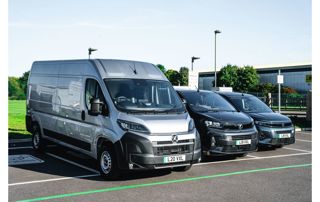
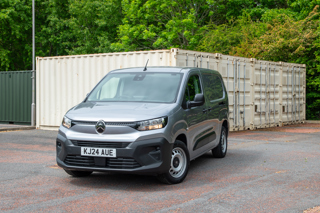
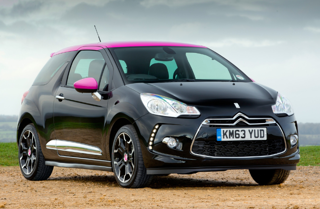
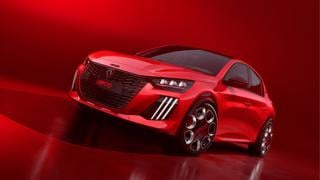
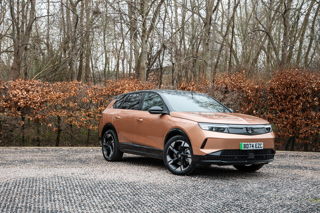












Login to comment
Comments
No comments have been made yet.